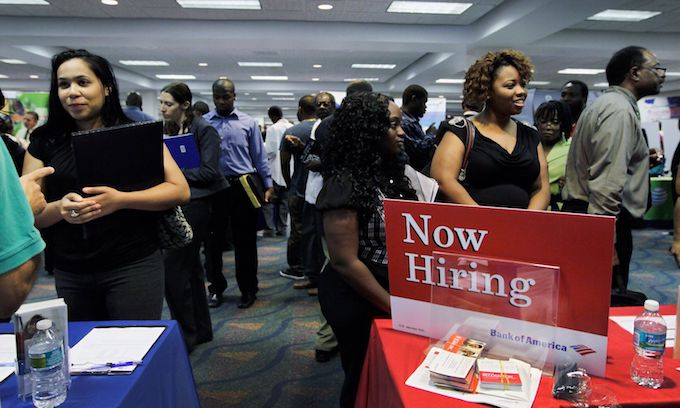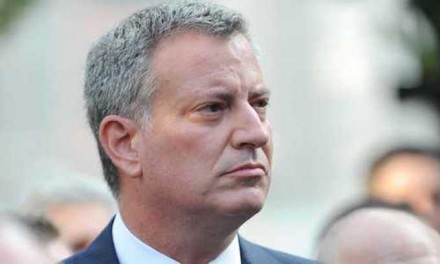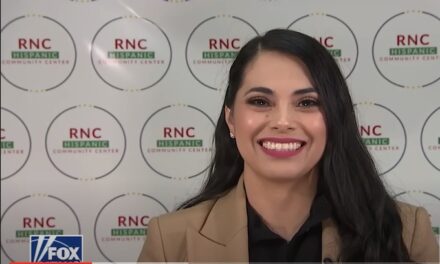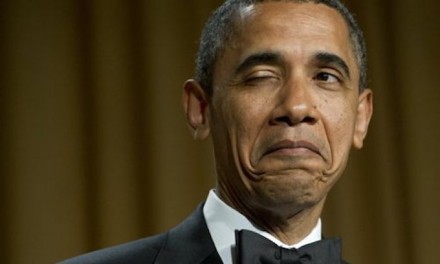The Trump economy has delivered strong growth and low unemployment — now the challenge is to keep it all going.
Cutting taxes and clearing out burdensome regulations offer businesses better incentives to invest but as in Tinkerbell’s admonitions to Wendy, Americans have to believe for it to happen.
Despite relentless criticism from Democrats on the Hill, the liberal-dominated media and barnstorming socialists like Bernie Sanders, the president has persuaded businesses and ordinary folks that good old fashioned capitalism and enlightened self-interest still works.
It’s in the numbers. The pace of hiring is up, and Mr. Trump’s economy coming off a big second quarter is averaging 2.7 percent growth — that’s about 40 percent better than the disappointing performances of Messrs. Bush and Obama.
Mr. Trump did inherit a lot of excess capacity from his predecessors. Although the unemployment rate was already at 4.7 percent when he took office, many young people were underemployed — liberal arts majors working as baristas or in professional looking jobs like assistant manager at a bank or retailer that hardly require the skills of a college graduate.
Now employers are getting more realistic — and practical — by abandoning for new hires requirements for college degrees and highly specific experience and skill sets. That’s helping self-taught software engineers get placed at Intel and high school graduates land entry level professional positions at Bank of America.
To keep growth in high gear, businesses have to follow through by adding to training budgets and the many private apprenticeship programs like HVAC Training HQ that the Department of Labor certifies and helps young folks identify. The latter are not just in traditional building trades but also in technology, manufacturing and service industries. Many pay about $15 an hour during training and average starting salaries of $60,000 for those who successfully complete programs.
Beyond these, President Trump is establishing an advisory council comprised of corporate, nonprofit, state government and educational leaders that will work to implement results-oriented job training programs in classrooms and workplaces.
Too many high schools dropped traditional vocational programs in recent decades under pressures from tight budgets and to channel students to college. Mostly that resulted in lots of young people who dropped out after a year or two or graduated from a degree program that did not adequately prepare them for the jobs market. The resulting burden of debt, especially for minorities, too often is overwhelming.
Job one for the president’s council has to be getting more young people steered from college track and into vo-tech and apprenticeships, and incentivizing states to redirect funds now going to useless university programs back into those areas.
Finally, regulation has to make sense — not just for America but for the broader world.
Suspending disbelief about the missions of the Paris Agreement on Climate Change and the World Trade Organization, the bottom line is that American compliance doesn’t mean much if other nations are permitted to violate the rules or intent of those agreements.
Handcuffing American industry does little good if Chinese emissions are growing in leaps and bounds, and India and other developing nations are simply not adhering to the same standards as Western economies. Until they are, more sensible regulations for U.S. auto efficiency and overall emissions standards are in order.
President Obama rushed through higher gas-mileage standards after to his horrors Hillary Clinton lost the 2016 election to Mr. Trump. Consequently, freezing CAFE standards at their target for 2020 — fleet averages at about 37 MPG — instead of going all the way to 50 MPG in 2025 would be prudent, and Mr. Trump has initiated the necessary public comment processes.
While big tariffs on trade with China should not be our end goal, we simply can’t go on destroying millions of jobs and permitting Beijing’s bureaucrats to coerce American companies to transfer valuable technology in frontier areas like artificial intelligence and robotics.
If China can’t play by the rules of civilized nations — something even the more statist Europeans are now recognizing as a threat — then trade with China must be managed outside the WTO so that we may preserve the global body for trade among Western nations.
These are radical changes in policy that will reach deeply into our schools and affect relations with partners abroad but are necessary to keep the locomotive of American growth on track.
• Peter Morici is an economist and business professor at the University of Maryland, and a national columnist.
© Copyright (c) 2018 News World Communications, Inc.
—-
This content is published through a licensing agreement with Acquire Media using its NewsEdge technology.



















Recent Comments